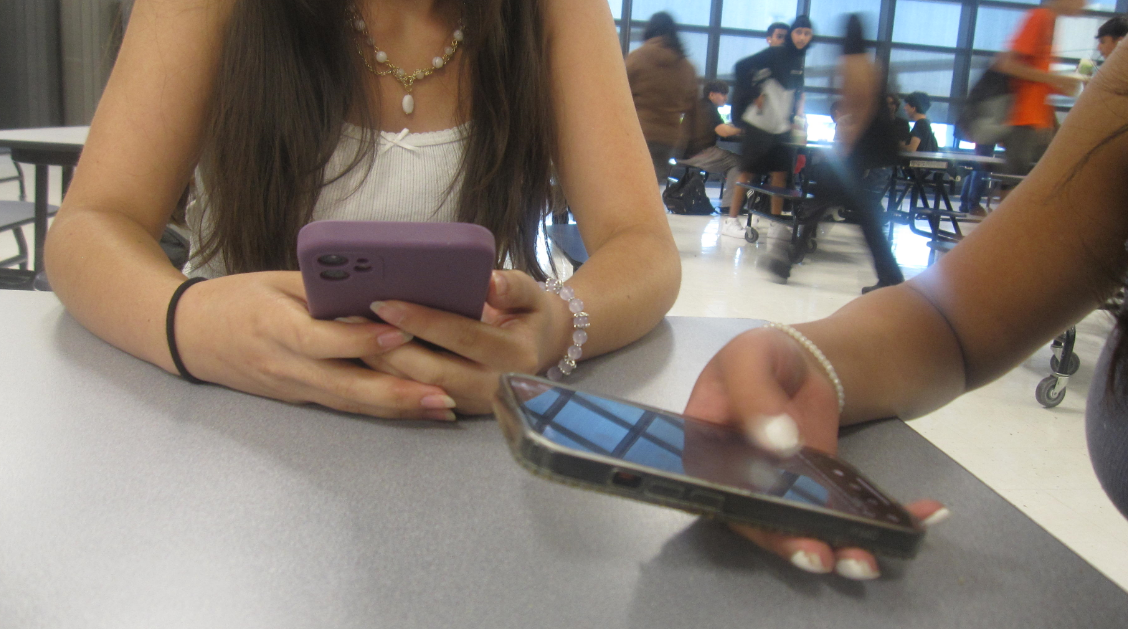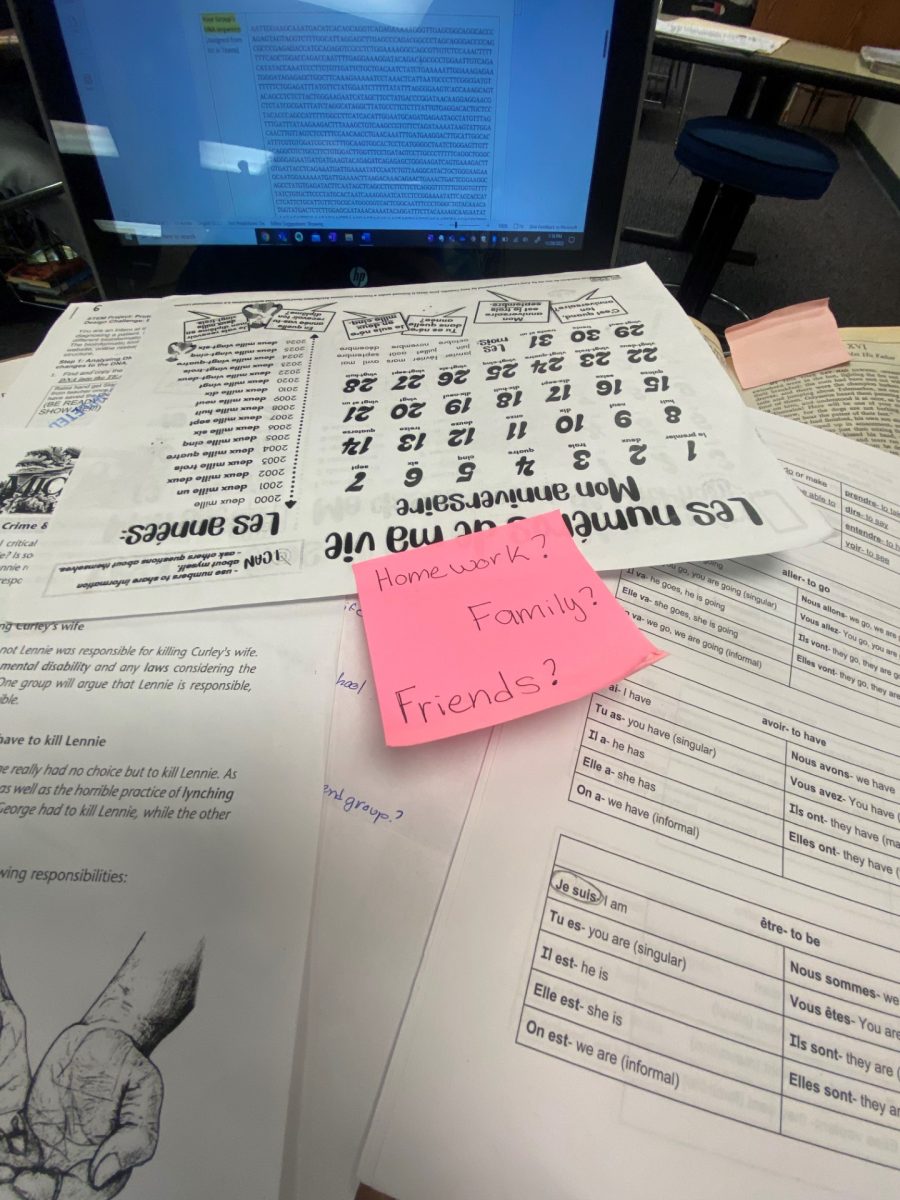It is without a doubt that phones have become a part of our everyday lives. After all, it helps us do simple things like checking the weather and can also keep us entertained with apps like YouTube and TikTok. With the future of technology, students can even use phones for homework help. In other words, the little boxes we carry around daily come with many useful benefits. However, easily losing track of time and spending hours on our phones without our knowledge is not unheard of. According to a website called Earthweb, “Americans spend an average of 5 ½ hours a day on their phone.” After reading this, I wondered what this amount of screen time can do to our social lives. Curious, I asked two students about their phone usage.
When asked, “How often do you use your phone?” Senior Andrea Villanueva answered, “I think I use my phone around seven hours a day.” Senior Melissa Chabre responded, “I basically use it all the time.” After hearing their responses, I decided to ask them what app they used the most throughout the week by looking at the screen-time feature on Apple. Villanueva’s screentime revealed that her most used app was Instagram (7 hours and 39 minutes). On the other hand, Chabre’s most used app was TikTok (15 hours and 14 minutes).
So, what does this ultimately do to our social lives? I spoke to our school therapist, Emily Adler, about this topic and its repercussions. The first question I asked her was, “Do you think our phones could be harmful if used too much? If so, what are the effects?” Adler’s response was, “Yes, they can cause a wedge in relationships and impact social skills,” she states. “I have found that technology has reduced in-person human interaction and therefore people have difficulty with nonverbal communication.”
Since social media is such a significant factor in phone usage, Adler also goes on to explain to me how she’s had students come to her regarding the issue of negative things being posted on social media and how it affected them. “I have had students vent to me about the negative things posted on social media and how it impacts them,” Adler explains. “I have also experienced students venting about the unobtainable image that social media gives regarding body image. This results in students having lower self-esteem and developing other health issues.”
Following this, Villanueva shared something similar to what Adler said. “Using your phone too much can be harmful since social media is exposing us to fake standards,” Villanueva states passionately. “It can put ideas in your head about what the world is like when the real world for the most part isn’t like that.”
Although phones are helpful, it’s hard to deny that they come with negative consequences. Spending too much time on our phones could be harmful to both our mental and physical health. Instead of spending time on our phones 24/7, Adler suggests we “find ways to socialize in person or find other activities that are engaging.”







